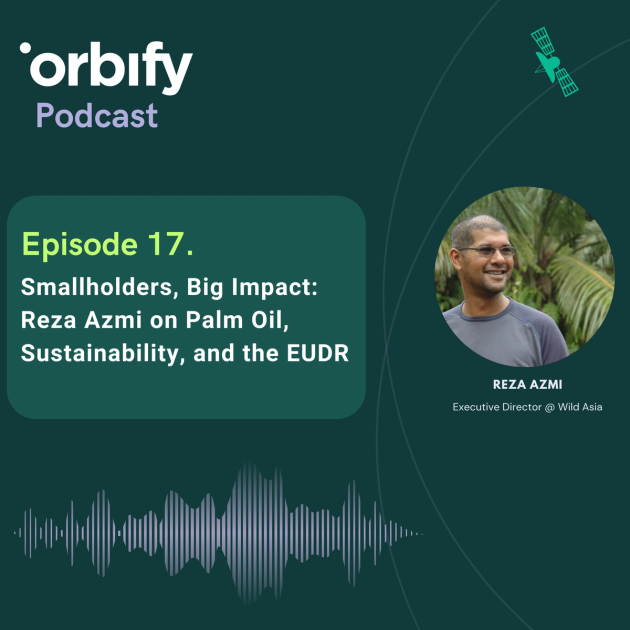Smallholders, Big Impact: Reza Azmi on Palm Oil, Sustainability, and the EUDR
In this episode of Earth Central, we speak with Reza Asmi, Executive Director of Wild Asia, to explore SPIRAL Connect — a bottom-up model transforming palm oil supply chains by empowering independent smallholders and progressive mills across Southeast Asia. (spiral.wildasia.org)
Reza shares the evolution of Wild Asia’s mission: from early conservation work in Malaysian forests to pioneering certified smallholder groups under RSPO standards. Today, their SPIRAL Connect initiative is redefining how sustainability works on the ground — integrating regenerative practices, fermentation-based farming, and real-time traceability into everyday palm oil production.
With a footprint now reaching over 32,000 hectares, SPIRAL Connect demonstrates how investing in soil health, biodiversity, and farmer livelihoods can reduce costs, improve yields, and lower carbon footprints — making palm oil both more inclusive and resilient. Reza also shares how open-source training and farmer-to-farmer learning are helping scale this approach from Malaysia to Thailand, Indonesia, and even Peru.
The conversation highlights how SPIRAL differs from traditional top-down certification schemes. Instead, it builds value-chain relationships that align farmer incentives with downstream buyer commitments. Reza emphasizes the need to engage procurement departments — not just sustainability teams — to drive real transformation.
We also discuss the EU Deforestation Regulation (EUDR), the readiness of SPIRAL’s smallholders for compliance, and the limitations of current traceability efforts. Reza offers a grounded, nuanced view on what’s needed next: better tools, two-way data flows, and stronger partnerships that go beyond compliance to foster long-term regeneration.
Key themes:
- Regenerative palm oil rooted in biodiversity and soil health
- Farmer-led innovation using fermentation and natural farming
- Scaling traceability and compliance with EUDR
- Unlocking real value through procurement and buyer alignment
- Building a global network of farmer champions and knowledge hubs
SPIRAL Connect is not a certification — it’s a movement. One that centers smallholders, strengthens value chains, and brings measurable gains in carbon, biodiversity, and livelihoods.



